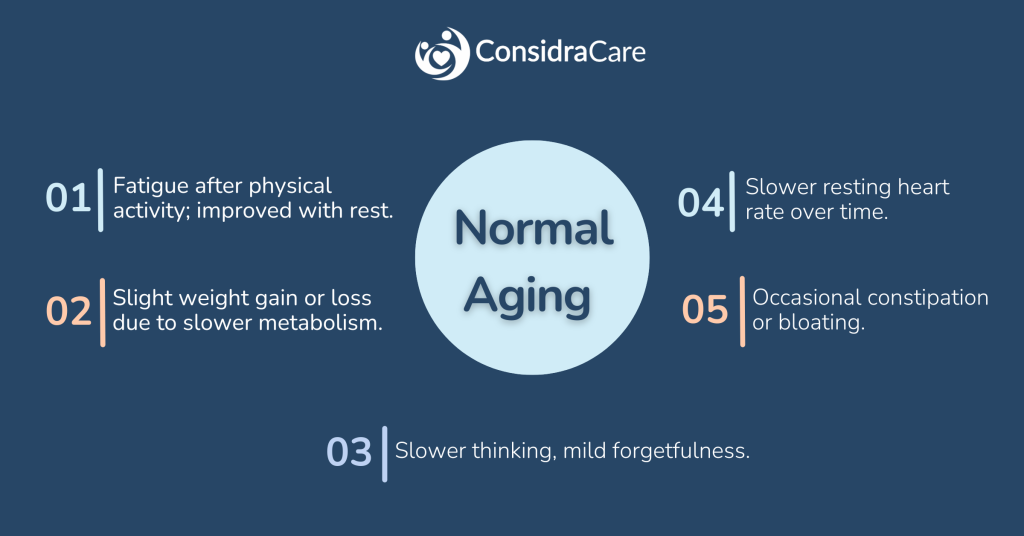Sluggish thyroid function can lead to serious health problems, such as high cholesterol, cognitive decline, weight gain, bowel changes, and more. In this article, I will discuss early warning signs of thyroid problems and their impact on your health.
What are the Early Warning Signs of Thyroid Problems?
The signs and symptoms of thyroid problems depend on how much hormone the thyroid gland produces. If the gland produces too much hormone, the condition is called hyperthyroidism, which causes the body’s function to speed up. On the other hand, if the thyroid isn’t producing enough hormones, it leads to hypothyroidism, or underactive thyroid, which slows the body down and makes it feel lethargic.
1. Hyperthyroidism:
Here’s how you can identify if your body is releasing too much thyroid hormone:
- Protruding eyes followed by redness, irritation, and double vision.
- Overactivity in the digestive system leads to more frequent or loose stools.
- A noticeable loss of muscle strength, particularly in the thighs and upper arms.
- Irregular heartbeats, such as atrial fibrillation, or an unusually fast heart rate (tachycardia).
- Hyperthyroidism can strain the heart, potentially leading to heart failure if left untreated.
- Anxiety, panic attacks, irritability, and depression are common due to the overactive metabolism affecting brain function.
- Heat Intolerance and Excessive Sweating: Feeling unusually hot, even in cool settings, and sweating more than usual.
2. Thyroid Nodules:

3. Hypothyroidism:
When the thyroid produces an insufficient hormone, your metabolic system will not function properly, affecting various systems such as:
- Constipation
- Hearing loss
- Hoarseness in the voice
- Unexplained weight gain
- Unexplained high cholesterol
- Slow heart rate (bradycardia)
- Pain, stiffness, or swelling in the joints
- Numbness or tingling in the hands and feet
- Swelling in the face, particularly around the eyes
- Hyponatremia (low sodium levels in the blood)
- Muscle weakness, aches, tenderness, or stiffness
- Thinning or loss of the outer edges of eyebrows
- Low energy level and cognitive decline(initial stage of cognitive decline can be misdiagnosed as dementia)
Other symptoms:
Finger Nails: Studies have found that slow-growing, thin, and onycholysis Plummer’s nails (nail bed separating from nail body) are associated with hypothyroidism, and onycholysis, koilonychia (nail becoming thin, flat, or curved inwards), and brittle nail changes have been seen in people with hyperthyroidism.
Hair Loss: In thyroid disorders, 33.3% of the patients experience diffuse hair loss. Hair loss means that is evenly spread across the entire scalp rather than in specific patches is said to be diffused. This means the hair may appear thinner overall, but there are no distinct bald spots. The strands become weaker and shed more quickly. While mild hypo- or hyperthyroidism may not always cause significant hair loss, there is still a chance.
Skin: Research shows that the most common skin issue with thyroid problems is rough, dry skin, which 100% of patients experience. Many people (about 52.57%) also notice their skin changing color to yellow or orange. If you have hyperthyroidism, your skin might feel itchier than usual.
Impact of Thyroid Problems on Your Health:
Thyroid problems can affect your health and daily life in many ways. These issues can make it harder for you to stay independent, as you might struggle with everyday tasks or need more help from others.
Memory and thinking can also be affected, which can be frustrating and even isolating. You may feel anxious or down which can make socializing less enjoyable. If left untreated, thyroid issues can lead to more serious health problems, like heart issues or a higher risk of falls. Thyroid issues may disguise themselves as normal aging, but the signs and symptoms of aging are typically more subtle.

Consult Your Doctor:
If you notice any of these signs, there’s no need to worry. The best step you can take is to talk to your healthcare provider. They’ll listen to your concerns, help clear up any doubts, and run the necessary tests to understand what’s going on. If you need support—whether it’s communicating with your doctor or help with daily tasks—we’re here for you. Just a call away!
FAQ’s
- 65–70 years: 0.65–5.51 mIU/L
- 71–80 years: 0.85–5.89 mIU/L
- > 80 years: 0.78–6.70 mIU/L
2. Is fasting required for a thyroid test?
No, fasting is not required for thyroid function tests. You can eat and drink normally before the test unless your healthcare provider advises otherwise.
3. What is the age limit for thyroid?
There is no specific age limit for thyroid function; thyroid disorders can occur at any age. However, the prevalence of thyroid issues increases with age, making regular monitoring important for older adults.
4. What is a thyroid function test for the elderly?
A thyroid function test measures levels of TSH (a hormone released by the pituitary gland that controls t4 and t3). Free T4, and sometimes Free T3 in the blood to assess thyroid health. In the elderly, these tests help diagnose conditions like hypothyroidism or hyperthyroidism, which may present with subtle or atypical symptoms.
5. What thyroid problems do elderly people have?
Common thyroid issues in older adults include:
- Hypothyroidism: Underactive thyroid, leading to symptoms like fatigue, weight gain, and depression.
- Hyperthyroidism: Overactive thyroid, which may cause weight loss, rapid heartbeat, and anxiety.






